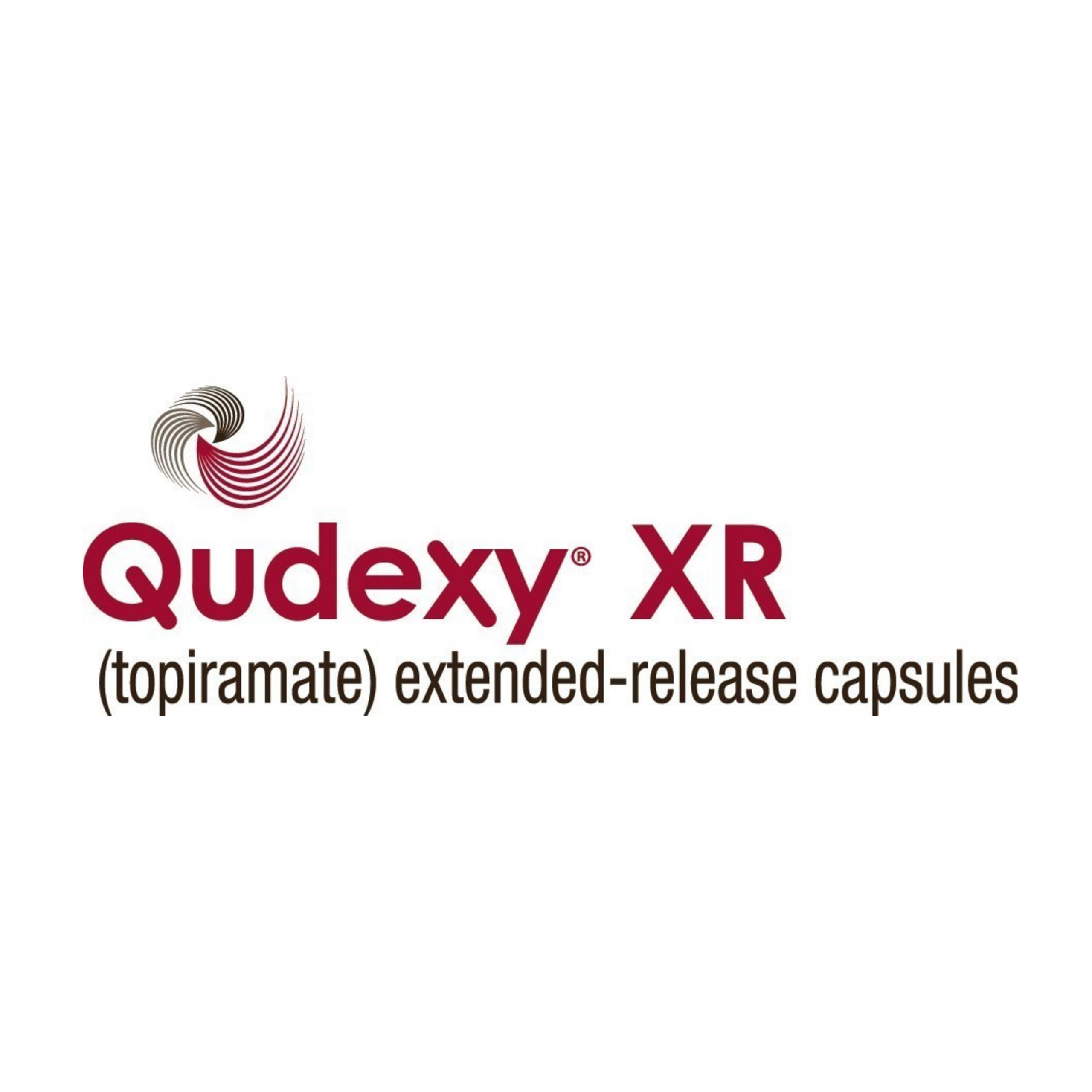Our Brands
Besides offering a broad array of generics that serve a wide variety of medical conditions, we also commercialize specialty brands for people with complex and rare conditions.

VIGAFYDETM (vigabatrin) Oral Solution
IMPORTANT SAFETY INFORMATION FOR VIGAFYDE™ (vigabatrin)
WARNING: PERMANENT VISION LOSS
- VIGAFYDE can cause permanent bilateral concentric visual field constriction, including tunnel vision that can result in disability. In some cases, VIGAFYDE also can damage the central retina and may decrease visual acuity.
- The onset of vision loss from VIGAFYDE is unpredictable, and can occur within weeks of starting treatment or sooner, or at any time after starting treatment, even after months or years.
- Symptoms of vision loss from VIGAFYDE are unlikely to be recognized by patients or caregivers before vision loss is severe. Vision loss of milder severity, while often unrecognized by the patient or caregiver, can still adversely affect function.
- The risk of vision loss increases with increasing dose and cumulative exposure, but there is no dose or exposure known to be free of risk of vision loss.
- Vision assessment is recommended at baseline (no later than 4 weeks after starting VIGAFYDE), at least every 3 months during therapy, and about 3 to 6 months after the discontinuation of therapy.
- Once detected, vision loss due to VIGAFYDE is not reversible. It is expected that, even with frequent monitoring, some patients will develop severe vision loss.
- Consider drug discontinuation, balancing benefit and risk, if vision loss is documented.
- Risk of new or worsening vision loss continues as long as VIGAFYDE is used. It is possible that vision loss can worsen despite discontinuation of VIGAFYDE.
- Because of the risk of vision loss, VIGAFYDE should be withdrawn from patients with infantile spasms who fail to show a substantial clinical benefit within 2-4 weeks of initiation or sooner if treatment failure becomes obvious.
Patients’ response to and continued need for VIGAFYDE should be periodically reassessed. - VIGAFYDE should not be used in patients with, or at high risk of, other types of irreversible vision loss unless the benefits of treatment clearly outweigh the risks.
- VIGAFYDE should not be used with other drugs associated with serious ophthalmic effects such as retinopathy or glaucoma unless the benefits clearly outweigh the risks.
- Use the lowest dosage and shortest exposure to VIGAFYDE consistent with clinical objectives.
Because of the risk of permanent vision loss, VIGAFYDE is available through a restricted program under a Risk Evaluation and Mitigation Strategy (REMS) called the Vigabatrin REMS. Further information is available at www.vigabatrinREMS.com or 1-866-244-8175.
WARNINGS AND PRECAUTIONS
- Permanent Vision Loss: VIGAFYDE can cause permanent vision loss. Because of this risk and because, when it is effective, VIGAFYDE provides an observable symptomatic benefit, patient response and continued need for treatment should be periodically assessed. Monitoring of vision by an ophthalmic professional with expertise in visual field interpretation and the ability to perform dilated indirect ophthalmoscopy of the retina is recommended. Because vision testing in infants and children is difficult, vision loss may not be detected until it is severe. VIGAFYDE is not approved for use in pediatric patients older than 2 years of age or in adults.
- VIGAFYDE is available only through a restricted program called the Vigabatrin REMS.
- Magnetic Resonance Imaging (MRI) Abnormalities in Infants:
Abnormal MRI signal changes characterized by increased T2 signal and restricted diffusion in a symmetric pattern involving the thalamus, basal ganglia, brain stem, and cerebellum have been observed in some infants treated with vigabatrin. - Neurotoxicity: Intramyelinic edema (IME) has been reported in postmortem examination of infants being treated for IS with vigabatrin.
- Withdrawal of Antiepileptic Drugs (AEDs): As with all AEDs, VIGAFYDE should be withdrawn gradually. However, if withdrawal is needed because of a serious adverse event, rapid discontinuation can be considered. Patients and caregivers should be told not to suddenly discontinue VIGAFYDE therapy.
- Anemia: Monitor for symptoms of anemia.
- Somnolence and Fatigue: VIGAFYDE causes somnolence and fatigue.
- Peripheral Neuropathy and Edema: Vigabatrin causes symptoms of peripheral neuropathy and edema in adults. VIGAFYDE is not approved for use in adults. In pediatric clinical trials (pooled data), the incidence of peripheral neuropathy and edema observed in pediatric patients was similar on vigabatrin and placebo.
- Weight Gain: VIGAFYDE causes weight gain in pediatric patients.
ADVERSE REACTIONS
Most common (≥10%) adverse reactions in patients receiving low-dose (18-36 mg/kg/day) vs high-dose (100-148 mg/kg/day) vigabatrin, respectively, were upper respiratory tract infection (51%, 46%), otitis media (44%, 30%), fever (29%, 19%), viral infection (20%, 19%), sedation (19%, 17%), somnolence (17%, 19%), irritability (16%, 23%), constipation (14%, 12%), vomiting (14%, 20%), diarrhea (13%, 12%), nasal congestion (13%, 4%), pneumonia (13%, 11%), insomnia (10%, 12%), ear infection (7%, 14%), and rash (8%, 11%).
You are encouraged to report negative side effects of prescription drugs to the FDA. Visit www.fda.gov/medwatch or call 1-800-FDA-1088 or Upsher-Smith Laboratories at 1-888-650-3789.
Please see full Prescribing Information, including BOXED WARNING, for additional Important Safety Information, Medication Guide, and Instructions for Use.
INDICATION
VIGAFYDE™ (vigabatrin) is indicated as monotherapy for the treatment of infantile spasms in pediatric patients 1 month to 2 years of age for whom the potential benefits outweigh the potential risk of vision loss.

VIGADRONE® (vigabatrin) 500 mg for Oral Solution and 500 mg Tablets
WHAT IMPORTANT SAFETY INFORMATION SHOULD I KNOW ABOUT VIGADRONE (vigabatrin)?
WARNING: PERMANENT VISION LOSS
See Medication Guide and full Prescribing Information for complete information.
All people who take VIGADRONE:
- You are at risk for permanent vision loss with any amount of VIGADRONE.
- Your risk of vision loss may be higher the more VIGADRONE you take daily and the longer you take it.
- It is not possible for your healthcare provider to know when vision loss will happen. It could happen soon after starting VIGADRONE or any time during treatment. It may even happen after treatment has stopped.
- Because VIGADRONE might cause permanent vision loss, it is available to healthcare providers and patients only under a special program called the Vigabatrin Risk Evaluation and Mitigation Strategy (REMS) Program. Your healthcare provider will explain the details of this Program to you.
- VIGADRONE can damage the vision of anyone who takes it. Some people can have severe loss, particularly to their ability to see to the side when looking straight ahead (peripheral vision). With severe vision loss, you may only be able to see things straight in front of you (sometimes called “tunnel vision”). You may also have blurry vision. If this happens, it will not get better.
- Tell your healthcare provider right away if you (or your child): might not be seeing as well as before starting VIGADRONE; start to trip, bump into things, or are more clumsy than usual; are surprised by people or things coming in front of you that seem to come out of nowhere; or if your baby is acting differently than normal. These changes can mean that vision damage has occurred.
- Regular vision testing is recommended. It is recommended that your healthcare provider test your (or your child’s) vision before or within 4 weeks after starting VIGADRONE, and at least every 3 months during treatment until VIGADRONE is stopped. It is also recommended that vision be tested about 3 to 6 months after VIGADRONE is stopped. It is difficult to test vision in babies, but to the extent possible, all patients should have their vision tested. Your healthcare provider will determine if testing can be done. Regular vision testing is important because damage can happen before any changes are noticed.
- Vision tests cannot prevent the vision damage that can happen with VIGADRONE, but they do allow VIGADRONE to be stopped if vision has gotten worse, which usually will lessen further damage. Even these regular vision tests may not show vision damage before it is serious and permanent. Parents, caregivers, and healthcare providers may not recognize the symptoms, or find vision loss in patients, until it is severe.
- If you do not have these vision tests regularly, your healthcare provider may stop prescribing VIGADRONE for you (or your child). Some people are not able to complete vision testing. If vision testing cannot be done, your healthcare provider may continue prescribing VIGADRONE, but will not be able to watch for any vision loss.
- Magnetic resonance imaging (MRI) changes in patients with infantile spasms (IS). Brain pictures taken by MRI show changes in some patients after they are given VIGADRONE. It is not known if these changes are harmful.
- A type of swelling in the brain called intramyelinic edema (IME) has been seen in autopsy examination of patients treated with vigabatrin.
- Risk of suicidal thoughts or actions. Like other antiepileptic drugs, VIGADRONE may cause suicidal thoughts and actions in some people (about 1 in 500 people). Call a healthcare provider right away if you (or your child) have any symptoms, especially sudden changes in mood, behaviors, thoughts or feelings, and especially if they are new, worse, or worry you.
- Do not stop VIGADRONE without first talking to a healthcare provider. Stopping VIGADRONE suddenly can cause seizures that will not stop.
VIGADRONE can cause serious side effects such as low red blood cell counts (anemia), sleepiness and tiredness, nerve problems, weight gain, and swelling. Because VIGADRONE causes sleepiness and tiredness, do not drive, operate machinery, or perform any hazardous task, unless it is decided that these things can be done safely. VIGADRONE may make certain types of seizures worse. Tell your healthcare provider right away if seizures get worse.
Before starting VIGADRONE, tell your doctor about all of your (or your child’s) medical conditions including depression, mood problems, suicidal thoughts or behavior, any allergic reaction to VIGADRONE, vision problems, kidney problems, low red blood cell counts (anemia), and any nervous or mental illnesses. Tell your doctor about all the medicines you (or your child) take.
If you are breastfeeding or plan to breastfeed, VIGADRONE can pass into breast milk and may harm your baby. Breastfeeding is not recommended.
If you are pregnant or plan to become pregnant, VIGADRONE can cause harm to your unborn baby. You and your healthcare provider will have to decide if you should take VIGADRONE while you are pregnant.
The most common side effects of VIGADRONE in adults include: blurred vision, sleepiness, dizziness, problems walking or feeling uncoordinated, shaking (tremor) and tiredness.
The most common side effect of VIGADRONE in children 3 to 16 years of age is weight gain. Also expect side effects like those seen in adults.
The most common side effects of VIGADRONE in babies include: sleepiness (sleepy babies may have a harder time suckling and feeding or may be irritable), swelling in the bronchial tubes (bronchitis), ear infection and irritability.
Tell your healthcare provider if you or your child have any side effect that bothers you or that does not go away.
This is the most important information to know about VIGADRONE, but it is not all the safety information. For more information, ask your healthcare provider or pharmacist, or please see the VIGADRONE Medication Guide, full Prescribing Information including Boxed Warning for risk of permanent vision loss, and Instructions for Use. You can also visit vigadrone.com, upsher-smith.com or call 1-888-650-3789.
You are encouraged to report negative side effects of prescription drugs to the FDA. Visit www.fda.gov/medwatch, or call 1-800-332-1088.
WHAT IS VIGADRONE?
VIGADRONE (vigabatrin) is a prescription medicine used to treat:
- Infantile Spasms (IS) in patients 1 month to 2 years of age, if you and your healthcare provider decide the possible benefits of taking VIGADRONE are more important than the possible risk of vision loss.
- Refractory Complex Partial Seizures (CPS) in adults and children 2 years and older with refractory complex partial seizures (CPS) along with other treatments if:
- The CPS do not respond well enough to several other treatments, and
- You and your healthcare provider decide the possible benefit of taking VIGADRONE is more important than the risk of vision loss.
VIGADRONE should not be the first medicine used to treat CPS.
VIGADRONE is a registered trademark of Upsher-Smith Laboratories, LLC.

TORPENZ™ (everolimus) Tablets
WHAT IMPORTANT SAFETY INFORMATION SHOULD I KNOW ABOUT TORPENZ™ (everolimus) TABLETS in Tuberous Sclerosis Complex?
Do not take TORPENZ if you have had an allergic reaction to everolimus. Talk to your healthcare provider before taking TORPENZ if you are allergic to sirolimus or temsirolimus. Ask your provider if you do not know.
TORPENZ can cause serious side effects, including:
- Lung or breathing problems. In some people, these may be severe and can be life threatening. Tell your healthcare provider right away if you have new or worsening cough, shortness of breath, chest pain, difficulty breathing or wheezing.
- Higher likelihood of infection such as pneumonia, or a bacterial, fungal, or viral infection. Viral infections may include active hepatitis B in people who have had hepatitis B in the past (reactivation). In some adults and children, these infections may be severe and can be life threatening. You may need to be treated as soon as possible. Tell your healthcare provider right away if you have a temperature of 100.5˚F or above, chills, or do not feel well. Symptoms of infection may include:
|
|
- Severe allergic reactions. Get medical help right away if you have signs of an allergic reaction, including rash, itching, hives, flushing, trouble breathing or swallowing, chest pain or dizziness.
- Possible increased risk for a type of allergic reaction called angioedema in people who take an Angiotensin-Converting Enzyme (ACE) inhibitor with TORPENZ. Talk with your healthcare provider before taking TORPENZ if you are not sure if you take an ACE inhibitor. Get medical help right away if you have trouble breathing or develop swelling of your tongue, mouth, or throat during treatment with TORPENZ.
- Mouth ulcers and sores. Mouth ulcers and sores are common during treatment with TORPENZ but can also be severe. When you start TORPENZ, your healthcare provider may tell you to also start a prescription mouthwash to reduce the likelihood of getting mouth ulcers or sores and to reduce their severity. Follow your provider’s instructions on how to use this mouthwash. If you develop pain, discomfort, or open sores in your mouth, tell your provider.
- Kidney failure. In some people, this may be severe and can be life threatening. Your healthcare provider should check your kidney function before and during treatment.
- Wound healing problems. Wounds may not heal properly during TORPENZ treatment. Tell your healthcare provider if you plan to have any surgery before starting or during treatment. You should stop TORPENZ at least 1 week before planned surgery. Your provider should tell you when to start taking TORPENZ again after surgery.
- Increased blood sugar and fat (cholesterol and triglyceride) levels in the blood. Your healthcare provider should check your fasting blood sugar, cholesterol, and triglyceride levels in the blood before you start and during treatment.
- Decreased blood cell counts.TORPENZ can cause you to have decreased red blood cells, white blood cells and platelets. Your healthcare provider should check your blood cell counts before you start and during treatment.
- Worsening side effects from radiation treatment that can sometimes be severe. Tell your healthcare provider if you have had or are planning to receive radiation therapy.
Before taking TORPENZ, tell your healthcare provider about all of your medical conditions, including if you:
- Have or have had kidney or liver problems, have diabetes or high blood sugar, have high blood cholesterol, have any infections, or previously had hepatitis B.
- Are scheduled to receive any vaccinations. You should not receive a “live vaccine” or be around people who have recently received a “live vaccine” during your treatment with TORPENZ. If you are not sure about the type of immunization or vaccine, ask your provider. For children, work with your provider to complete the recommended childhood series of vaccines before your child starts TORPENZ.
- Are pregnant, can become pregnant, or have a partner who can become pregnant. TORPENZ can cause harm to your unborn baby. For females who are able to become pregnant, your provider will give you a pregnancy test before you start TORPENZ. Use effective birth control during treatment and for 8 weeks after your last dose of TORPENZ. Males with a female partner should use effective birth control during treatment and for 4 weeks after your last dose of TORPENZ.
- Are breastfeeding or plan to breastfeed. Do not breastfeed during treatment and for 2 weeks after your last dose of TORPENZ.
- Are planning to have or have had a recent surgery. You should stop taking TORPENZ at least 1 week before planned surgery.
- Have received or are planning to receive radiation therapy.
Tell your healthcare provider about all of the medicines you take, including prescription and over-the-counter medicines, vitamins, and herbal supplements. Taking TORPENZ with some medicines can cause serious side effects. Keep a list of medications you take, and show it to your healthcare provider and pharmacist when you get a new medicine. Especially tell your provider if you take:
- St. John’s Wort (Hypericum perforatum)
- Medicine for fungal or bacterial infections, tuberculosis, seizures, HIV-AIDS, heart conditions or high blood pressure, including ACE inhibitors
- Medicines that weaken your immune system (your body’s ability to fight infections and other problems)
Ask your provider or pharmacist if you are not sure if your medicine is one of those taken for the conditions listed above. If you are taking any medicines for the conditions listed above, your provider might need to prescribe a different medicine or your dose of TORPENZ may need to be changed. Tell your provider before you start any new medicine.
You should not drink grapefruit juice or eat grapefruit during your treatment with TORPENZ. It may make the amount of TORPENZ in your blood increase to a harmful level.
The most common side effect of TORPENZ in people who have SEGA or renal angiomyolipoma include respiratory tract infection.
Other side effects that may occur with TORPENZ:
- Absence of menstrual periods (menstruation). Tell your healthcare provider if this happens.
- TORPENZ may affect fertility and may affect your ability to become pregnant if you are female or your ability to father a child if you are male. Talk to your provider if this is a concern.
Tell your healthcare provider if you have any side effect that bothers you or does not go away.
These are not all the possible side effects of TORPENZ. For more information, ask your healthcare provider or pharmacist. Call your doctor for medical advice about side effects. You can also visit TORPENZ.com, upsher-smith.com or call 1-888-650-3789.
You are encouraged to report negative side effects of prescription drugs to FDA. Visit www.fda.gov/medwatch or call 1-800-332-1088.
WHAT ARE TORPENZ (everolimus) TABLETS?
TORPENZ is a prescription medicine used to treat the following types of benign (non-cancerous) tumors that are seen with a genetic condition called tuberous sclerosis complex (TSC):
- Brain tumors called subependymal giant cell astrocytoma (SEGA), when the
tumor cannot be removed completely by surgery, in adults and children 1 year and older. - Kidney tumors called angiomyolipoma, when the tumor does not require surgery right away, in adults.
For additional information, including safety information, for non-TSC indications, see the full Prescribing Information, including Patient Information.

Qudexy® XR (topiramate) Extended-Release Capsules
IMPORTANT SAFETY INFORMATION
WHAT IS QUDEXY XR?
Qudexy® XR (topiramate) Extended-Release Capsules is a prescription medicine used:
- To prevent migraine headaches in adults and adolescents 12 years and older.
- To treat certain types of seizures (partial-onset seizures and primary generalized tonic-clonic seizures) in adults and children 2 years and older.
- With other medicines to treat certain types of seizures (partial-onset seizures, primary generalized tonic-clonic seizures, and seizures associated with Lennox-Gastaut syndrome) in adults and children 2 years and older.
WHAT IMPORTANT SAFETY INFORMATION SHOULD I KNOW?
Qudexy XR can cause serious side effects, including:
- Serious eye problems, which may include blurred or sudden decrease in vision with or without eye pain and redness, or a blockage of fluid that may cause increased pressure in the eye (secondary angle closure glaucoma). If left untreated, this can lead to permanent vision loss.
- Decreased sweating and fever. People, especially children, should be watched for signs of decreased sweating and fever, especially in hot temperatures. Some people may need to be hospitalized for this condition.
- Increased acid level in the blood (metabolic acidosis). This may or may not cause symptoms. Symptoms may include feeling tired, decreased appetite, change in heartbeat, or trouble thinking clearly. If left untreated, metabolic acidosis can cause brittle or soft bones (osteoporosis, osteomalacia, osteopenia), kidney stones, can slow the rate of growth in children, and may possibly harm the unborn child of pregnant patients.
- Serious skin reactions. Qudexy XR may cause a severe rash with blisters and peeling skin, especially around the mouth, nose, eyes, and genitals (Stevens-Johnson syndrome). Qudexy XR may also cause a rash with blisters and peeling skin over much of the body that may cause death (toxic epidermal necrolysis).
- High blood ammonia levels. High ammonia in the blood can affect mental activities, slow alertness and cause tiredness or vomiting. This can also happen when Qudexy XR is taken with a medicine called valproic acid (e.g., Depakene® and Depakote®).
- Kidney stones. Drink plenty of fluids when taking Qudexy XR to decrease your chances of getting kidney stones.
- Low body temperature. Taking Qudexy XR when you are also taking valproic acid may cause a drop in body temperature to less than 95°F, tiredness, confusion, or coma.
- Effects on thinking and alertness. Qudexy XR may affect how you think and can cause confusion, problems with concentration, attention, memory, or speech. Qudexy XR may cause depression or mood problems, tiredness, and sleepiness.
- Dizziness or loss of muscle coordination.
Call your healthcare provider right away if you have any of the above symptoms.
Like other antiepileptic drugs, Qudexy XR may cause suicidal thoughts or actions in a very small number of people, about 1 in 500. Before taking Qudexy XR, tell your healthcare provider if you have or have had depression, mood problems, or suicidal thoughts or behavior. Call a healthcare provider right away if you have: thoughts about suicide or dying; attempt to commit suicide; have new or worsening depression or anxiety; feel agitated or restless; experience panic attacks, have trouble sleeping (insomnia); have new or worsening irritability; feel or act aggressive, angry, or violent; act on dangerous impulses; experience an extreme increase in activity and talking (mania); or other unusual changes in your behavior or mood.
Qudexy XR can harm your unborn baby. All women of childbearing age should talk to their healthcare provider about possible alternative treatments. If you take Qudexy XR during pregnancy, your baby has a higher risk for birth defects called cleft lip and cleft palate. These defects can begin early in pregnancy, even before you know you are pregnant. Also, if you take Qudexy XR during pregnancy, your baby may be smaller than expected at birth; the long-term effects of this are not known. If the decision is made to use Qudexy XR, you should use effective birth control (contraception). Tell your healthcare provider right away if you become, or plan to become pregnant while taking Qudexy XR.
The most common side effects of Qudexy XR include: tingling of the arms and legs (paresthesia), not feeling hungry, weight loss, nervousness, nausea, speech problems, tiredness, dizziness, sleepiness/drowsiness, a change in the way foods taste, upper respiratory tract infection, decreased feeling or sensitivity especially in the skin, slow reactions, difficulty with memory, fever, abnormal vision, diarrhea, and pain in the abdomen. These are not all the possible side effects of Qudexy XR. For more information, ask your healthcare provider or pharmacist.
Before taking Qudexy XR, tell your healthcare provider about all of your medical conditions, including if you: have had depression, mood problems, or suicidal thoughts or behavior; have kidney problems, kidney stones, or are getting kidney dialysis; have a history of metabolic acidosis (too much acid in the blood); have liver problems; have weak, brittle or soft bones (osteomalacia, osteoporosis, osteopenia, or decreased bone density); have lung or breathing problems; have eye problems, especially glaucoma; have diarrhea; have a growth problem; are on a diet high in fat and low in carbohydrates, which is called a ketogenic diet; are having surgery; are pregnant or planning to become pregnant; or if you are breastfeeding. The medicine in Qudexy XR (topiramate) passes into your breast milk. It is not known if the medicine, topiramate, that passes into breast milk can harm your baby. Talk with your healthcare provider about the best way to feed your baby if you take Qudexy XR.
Tell your healthcare provider about all the medicines you take, including prescription and over-the- counter medicines, vitamins, and herbal supplements. Especially tell your healthcare provider if you take metformin (e.g., Glucophage); valproic acid (e.g., Depakene or Depakote); any medicines that impair or decrease your thinking, concentration, or muscle coordination; birth control pills (Qudexy XR may make birth control pills less effective); medicines used to prevent seizures; or any other carbonic anhydrase inhibitors (e.g., zonisamide or acetazolamide).
Do not stop Qudexy XR without first talking to a healthcare provider. If you have epilepsy and you stop taking Qudexy XR suddenly, you may have seizures that do not stop. Your healthcare provider will tell you how to stop taking Qudexy XR slowly.
Do not drink alcohol while taking Qudexy XR. Qudexy XR and alcohol can cause side effects such as sleepiness and dizziness.
Do not drive a car, swim, climb, or operate heavy machinery until you know how Qudexy XR affects you. Qudexy XR can slow your thinking and motor skills, and may affect vision. Even when taking Qudexy XR, some patients with epilepsy will continue to have unpredictable seizures.
This is the most important information to know about Qudexy XR, but is not comprehensive. For more information, talk to your healthcare provider and read the Medication Guide for Qudexy XR. You can also visit www.upsher-smith.com or call 1-888-650-3789.
You are encouraged to report negative side effects of prescription drugs to the FDA. Visit www.fda.gov/medwatch, or call 1-800-FDA-1088.
Qudexy is a registered trademark of Upsher-Smith Laboratories, LLC.
All other marks are the property of their respective owners.


